Dear Friends and Members,
We just published our top 2020 sports and tech predictions (AR, VR, Wearables, AI, eSports..), so be sure to sign up for our premium subscription by clicking the “subscribe now” button below.
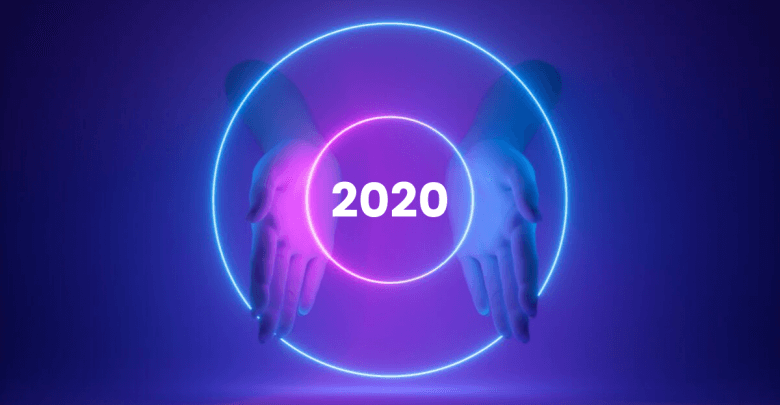 Looking for access all of our previously published analysis, insights, data, podcast interviews, and more? Subscribe now to unlock access!
Looking for access all of our previously published analysis, insights, data, podcast interviews, and more? Subscribe now to unlock access!
Next week we will be on a holiday break so we will not publish our weekly newsletter. The weekly newsletter and analysis will resume on January 6, 2020. Happy holidays!
? Top Stories We’re Reading This Week
? Augmented reality activations offer teams a new source of revenue
? Vicis lays off more than 100 employees in latest blow to troubled football helmet maker
? Update: Germany approves dedicated visa for pro esports athletes
? Puma’s first ‘active gaming footwear’ is a sock
? Latest Investment Trends
? Tech Stats of the Week
? Snapshots of the Week
Let’s jump right into the insights and upside for all of these top stories
? AR/VR/Video Sports News
? Augmented Reality Activations Offer Teams A New Source Of Revenue | Via: Front Office Sports
As the sports industry delves further into augmented reality, there is ample opportunity for teams to grow revenue streams by selling advertising around activations.
But to do that, more clubs and professional sports leagues have to embrace the still nascent technology first.
The AR market in sports remains largely underpenetrated, even as more examples of franchises using augmented and mixed reality pop up, experts say. Virtual reality is also becoming a larger part of team’s innovation plans. However, headsets and goggles required to experience it are just not as widely distributed as smartphones at this point.
The fact is that select teams are more excited about AR than others, according to Allan Cook, head of Deloitte’s digital reality business. Deloitte has launched activations in partnership with the USGA around U.S. Open tournaments over the past two years, featuring 3D views of select holes on golf courses and the player clubhouse.
Among its current projects, Deloitte is now in negotiations with two NFL teams that are also constructing new stadiums about how they can incorporate AR into the fan experience.
“You can probably guess who they are,” said Cook. “I think that teams are looking to Increase revenue for themselves. However, with fewer people going to games, there is a general fear about adopting AR and VR and justifying the expense.”
AR’s usage in sports is on par with other industries these days, Cook added. There are followers and leaders, just like in financial services and retail. Yet maximizing revenue streams in the future will go hand-in-hand with clubs going bigger on activations.
“There are already a bunch of stadiums that allow fans to pose with players,” he said. “But there are also all kinds of advertisement opportunities with jumbotrons, as both the NFL and the NBA experiment with ways to engage fans at halftime.”
Gamification is a common element introduced by teams as a way to improve the fan experience. Yet Cook envisions a world where a wider distribution of AR headsets can also bring the best of the in-home viewing experience to the stadium.
“The typical AR device we have now is our cellphone, and fans are not going to hold that up for three hours,” said Cook. “The next generation of AR can bring the yellow first-down line in football, live stats, and player identification to the stadium.”
Multiple sources contacted declined to comment for this story, perhaps a sign that the sports industry has yet to grasp the sales opportunity AR marketing activations can provide fully.
At least one franchise leveraging its AR strategy to grow sales is the Los Angeles Kings. The NHL team will launch ten interactive player cards this season, in partnership with blypIT, featuring stars like Jonathan Quick and Drew Doughty.
When fans scan the cards using blypIT’s app, player videos and offers from partnering sponsors become available. The list of five advertisers offering promotions to fans includes Toyota, Coca-Cola, Anheuser-Busch, Pepperdine University, and Mercury Insurance – which is giving fans free quotes and two complimentary game tickets to a future Kings game.
“The cards feature players on the front. And on the back, we have the partner ad,” said Nam McGrail, senior vice president of partnership activations for the LA Kings at AEG, the team’s parent company. “ So when fans come to a game, they scan the card with their phone, and the card comes to life.”
The Kings are big fans of AR, McGrail said. The team is also finding that brands are committed to advertising through the technology as well. She predicts the future of static advertising in sports will be tied to holding a cellphone over a still image to activate content or promotion.
“More teams and brands will start adopting and embracing AR technologies,” said McGrail. “It creates a unique opportunity to connect with fans that traditional marketing efforts can’t.”
⬆️ The Upside: We believe that we are still in the early days of a large number of pro teams and leagues fully monetizing AR in a big way. Currently smartphones remain the main platform for AR sports experience with some studies showing that 80% of AR experiences are built on smartphones. We expect to see a growing number of pro teams and leagues building AR sports apps allowing fans to get live stats, and biometric data of players, or even bet on next plays during live games. This is where 5G will play a key role to enable live betting via AR. There is still no consumer market for AR glasses today, but in the coming years we expect to see the emergence of affordable hybrid AR/MR/VR glasses that fans will be able to use at stadiums during live game to experience the same type of AR experiences offered on smartphones.
? Wearables, Health, Nutrition News
? Vicis lays off more than 100 employees in latest blow to troubled football helmet maker | Via: Geekwire
Seattle startup Vicis officially eliminated the jobs of more than 100 employees on Friday, including its interim CEO, in the latest sign of problems at the high-tech football helmet maker.
Previously, the company had furloughed employees, putting a majority of its 110-person staff on temporary leave while its board explored options including a potential sale. But in an employee webinar on Friday, the company informed employees that they are being officially let go, GeekWire has learned.
It’s the most significant sign of problems yet at the startup, which has abruptly run out of cash after raising more than $85 million from 400-plus investors including current and former NFL stars. A Vicis spokesperson declined to comment on the layoffs when contacted by GeekWire.
Bill Shadle, the company’s interim CEO, lost his job as part of the cuts, as well. The former Kymeta and HP executive joined the company in September as chief operating officer and was named to the interim CEO position in recent weeks.
⬆️ The Upside: We believe that several factors negatively impacted Vicis: (1) Hefty cost of Vicis helmets: Vicis helmets cost anywhere between $500 and $1500 which is too expensive for the US Youth and football market. On average American football helmets costs $100-150. (2) With 100+ employees with few sales, there is no question that its investors likely became skeptical about the viability of Vicis business and the likelihood of getting a solid ROI long term. (3) Many startups have tried to crack the code of smart helmet and Vicis, despite its good product, likely felt into the same trap. Ultimately seeing a hardware startup like Vicis shutting down after raising $85M could potentially make it even harder for hardware startups focusing on players’ safety to raise money in the future.
? eSports & Crypto-Currency News
? Update: Germany Approves Dedicated Visa for Pro Esports Athletes | Via: Esports Observer
The German Federal Government and States have introduced the country’s first dedicated esports visa, in correspondence to the new Skilled Immigration Act. Likely to become effective from March 2020, esports players and coaches from non-EU countries will now be entitled to an easy procedure for a permanent residency in the country—no longer requiring approval by the Federal Employment Agency, for example. This is providing they meet all age and contractual requirements.
“This development also may serve as a model for other nations,” said Hans Jagnow, president of the German Esports Federation (ESBD), in a statement. “The visa requirements for esports professionals should be harmonized internationally in order to allow easy access to tournaments and leagues for esports athletes all over the world.”
Yesterday’s vote was the culmination of two years of campaigning from the ESBD, the German Games Industry Association, and other organizations. A short-term visa was introduced last year, and now the ESBD will set up a streamlined procedure for confirming the eligibility of esports athletes for visas, in partnership with relevant stakeholders; i.e. game publishers and competition organizers.
- Germany’s ministry for work and social has drafted legislation for professional, non-EU esports players to work and reside in the country.
- Eligible players must be over 16-years-old, be employed by an esports team organization registered in Germany, and compete in a national or international league.
- Esports athletes currently enjoy eased travel into Germany, but only for 90 day stays.
The German government has published draft legislation that would allow professional esports athletes from outside the EU to live and compete in the country. Similar to existing sports visas, these regulations would include a permanent residency permit and easier entry into Germany. These measures would go into action next year if the draft is signed into law.
⬆️ The Upside: We believe this is a great move by the ESBD and the German government. It will help the ESBD attract more international esports talent (e.g. US, Europe, Asia..) at the college and pro level in Germany. We expect other countries (US, France, South Korea..) to follow suit and adopt a similar model in the future as a way to attract internal esports talent.
? Puma’s first ‘active gaming footwear’ is a sock | Via: Engadget
Sports and fashion have gone hand in hand for decades, so it’s no surprise that esports is slowly but surely making a similar impact. Nike has launched esports jerseys, Adidas has signed Ninja, and now Puma is getting in on the action with the launch of its “active gaming footwear.” Or, more specifically, “gaming socks.”
Exactly how these socks will improve your gaming performance is unclear, although Puma says the product has been designed for indoor and in-arena use to deliver “seamless comfort, support and grip so gamers can adapt to different active gaming modes and game their best.” So they might not make much of a difference if you’re gaming on the couch, but it does seem like they could have a role to play in more physical AR and VR environments.
At £80 (about $105) they’re a bit spendy, but that’s not wildly different to Puma’s other innovation offerings — it’s created a number of smart shoes, for example, as well as the Playseat which launched earlier this year. Gaming socks might sound a bit eyebrow-raising, but it’s a good example of a sports brand trying to figure out what gamers want — esports fashion is going to be big, so Puma is doing the smart thing by exploring the landscape early. The socks are currently available to buy in Australia and the UK.
⬆️ The Upside: We believe that this is a great move by Puma. It will help puma tap into the esports audience and tap into the fast growing eSports market expect to pass the $1B mark in terms of revenue this year. We also expect Puma to introduce some new lines of esports sports apparel products (e.g. smart suit or t-shirt embedded with biosensors) in the future. There could also be some implications with VR in order to launch new types of experiences like “Active eSports”. This is where Puma could partner with companies like Exodus Burned who offers a smart VR suit solution to eSports teams and leagues.
? Sports Investment (Fund raising, M&As) Trends — December, 2019
- Israel’s PlayerMaker raises $10M for Sports Analytics Wearables. Read on here.
- Pixellot announces acquisition of Game Analysis Platform VidSwap. Read on here.
- eSports organization Game.tv Raises $25M Series A Investment led by Intel Capital. Read on here.
- Deutsche Telekom Acquires 25% Stake in SK Gaming. Read on here.
? Key Tech Sports Stats of The Week
$16B: In 2018, the NFL grossed more than $16 billion in total revenue.
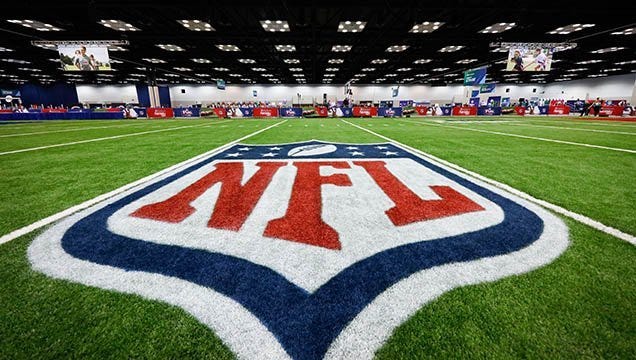 $2.4B: Nike reported another positive quarter of sales for the period ending November 30, propelled by strong demand for its running and sports apparel offerings. The categories grew to $2.4B and $1.4B, respectively, according to company SEC filing.
$2.4B: Nike reported another positive quarter of sales for the period ending November 30, propelled by strong demand for its running and sports apparel offerings. The categories grew to $2.4B and $1.4B, respectively, according to company SEC filing.
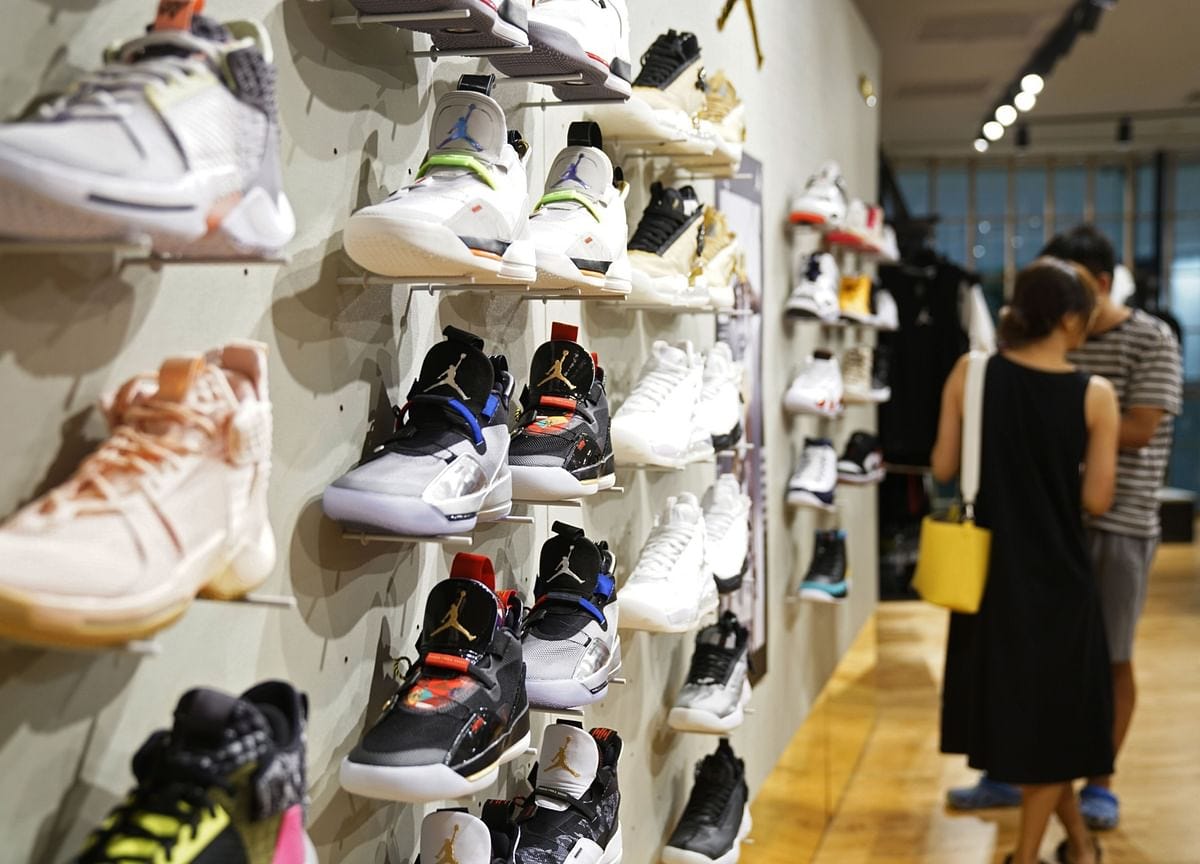 $1.B: Last quarter, consumers’ appetite for limited-edition Nike Air Jordan sneakers additionally helped the sneaker brand eclipse $1 billion in quarterly sales for the first time in its history, Nike CEO Matt Parker said on a conference call with investors last week.
$1.B: Last quarter, consumers’ appetite for limited-edition Nike Air Jordan sneakers additionally helped the sneaker brand eclipse $1 billion in quarterly sales for the first time in its history, Nike CEO Matt Parker said on a conference call with investors last week.
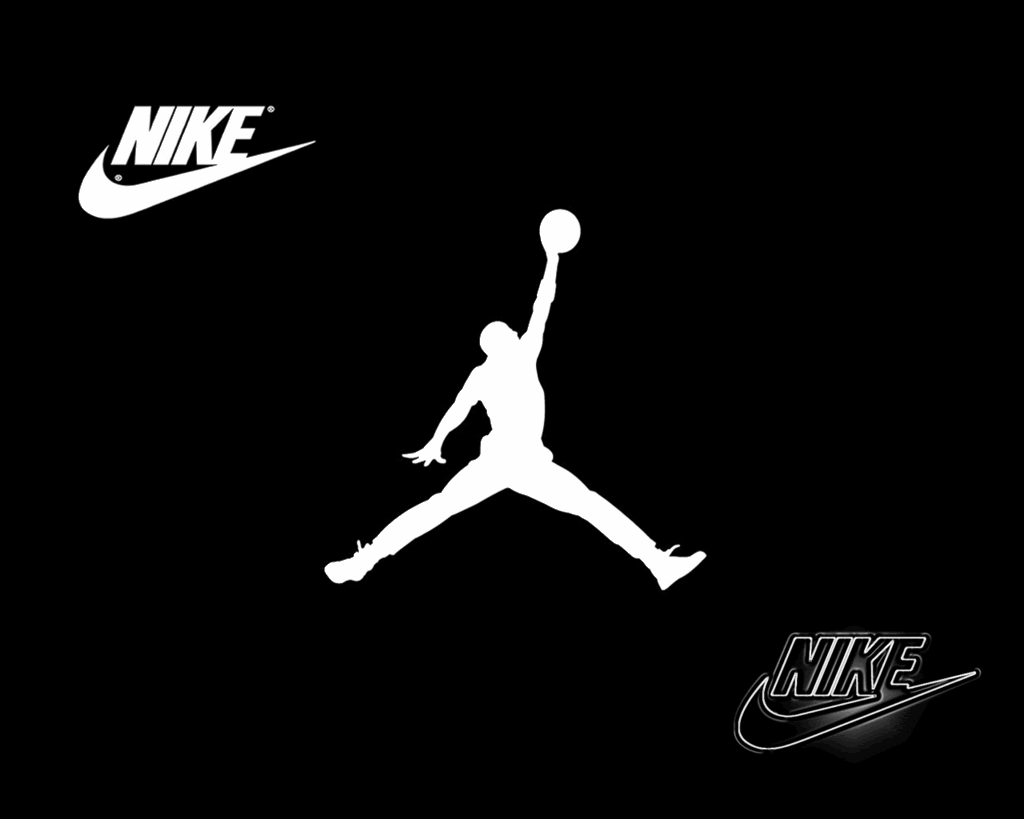 $1B: According to Andrew Marchand, MLB’s 10-year deal with Nike and Fanatics is worth more than $1 billion.
$1B: According to Andrew Marchand, MLB’s 10-year deal with Nike and Fanatics is worth more than $1 billion.
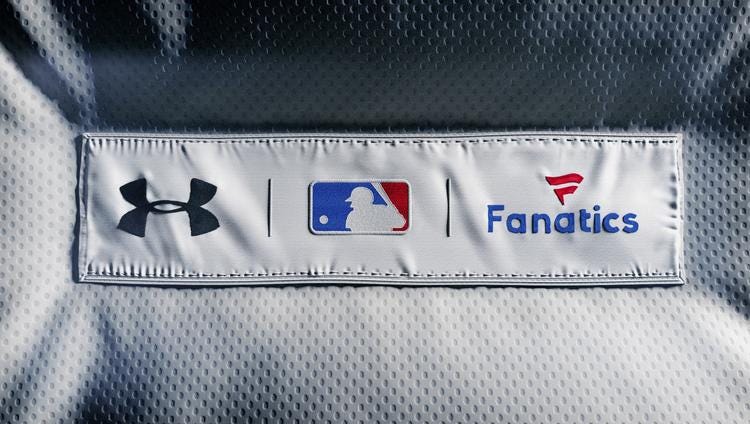 $1B: MLS generated about $1 billion in revenue in 2018, with the average team pulling in about $30 million, or roughly 10% as much as the average club in the English Premier League.
$1B: MLS generated about $1 billion in revenue in 2018, with the average team pulling in about $30 million, or roughly 10% as much as the average club in the English Premier League.
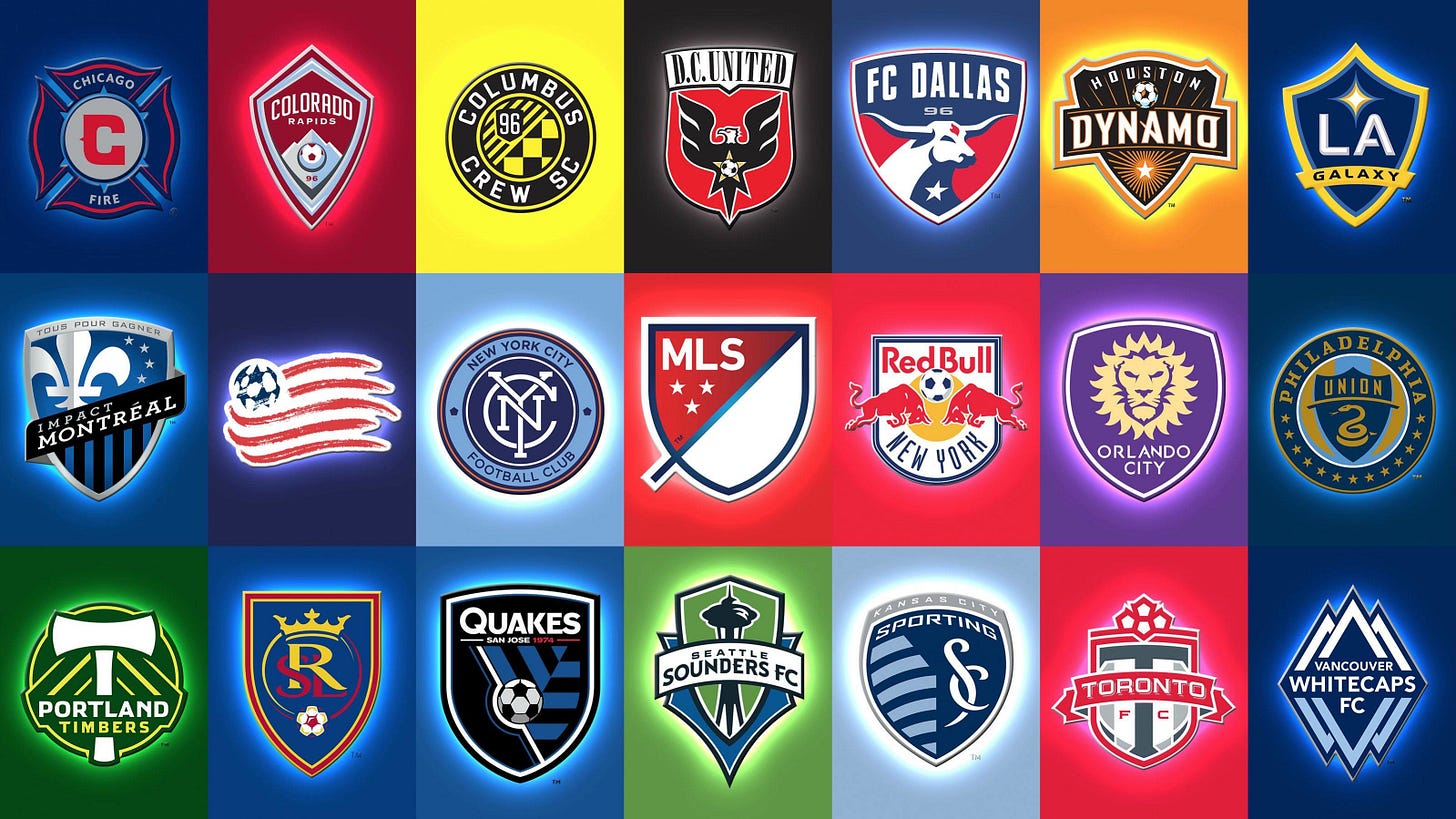 267M: 267M Facebook users IDs, names and phone numbers have been exposed online last week.
267M: 267M Facebook users IDs, names and phone numbers have been exposed online last week.
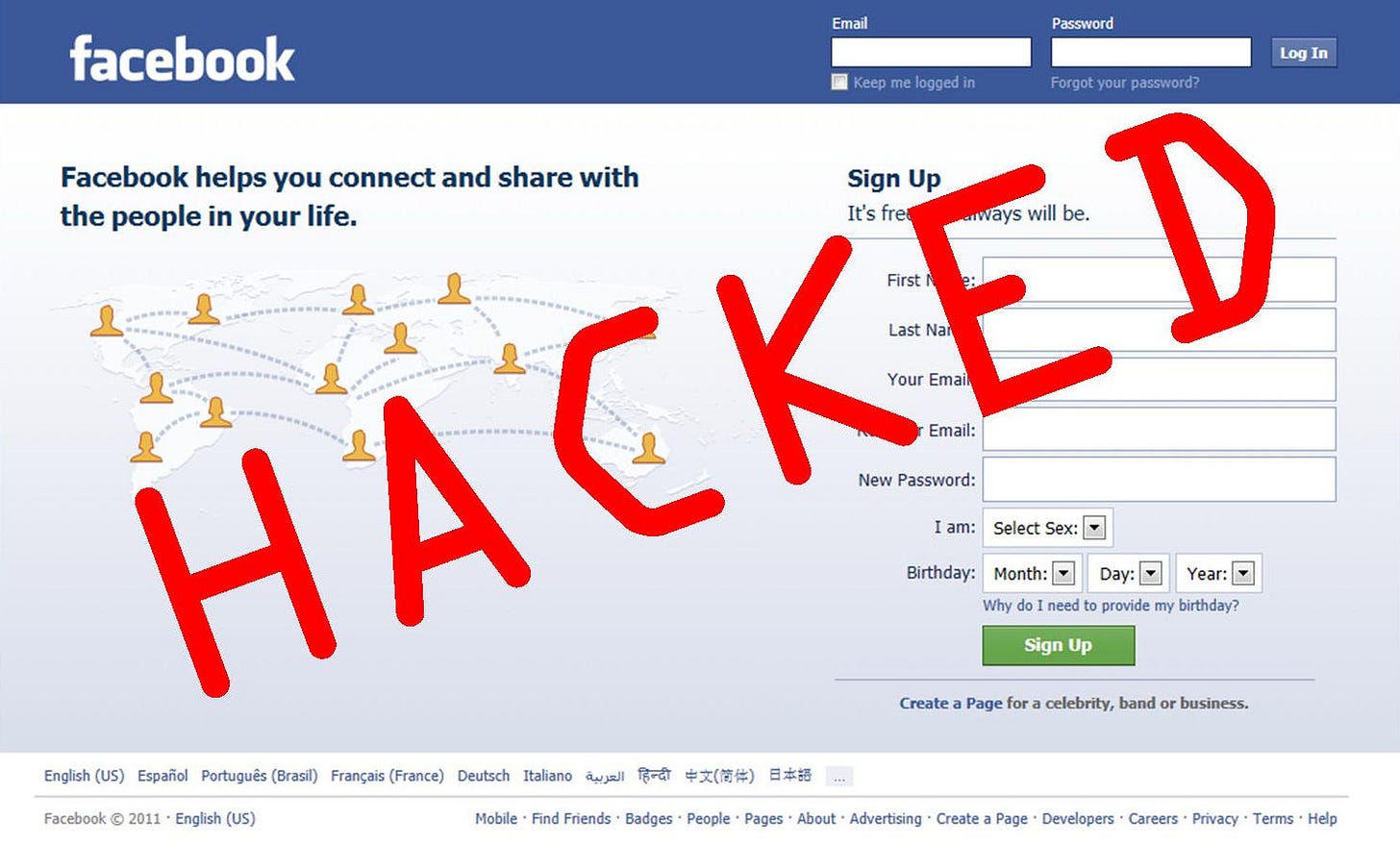 84M: Esports is set to have 84M viewers by 2021. They would have more viewers than every professional US sports leagues but the NFL by 2021.
84M: Esports is set to have 84M viewers by 2021. They would have more viewers than every professional US sports leagues but the NFL by 2021.
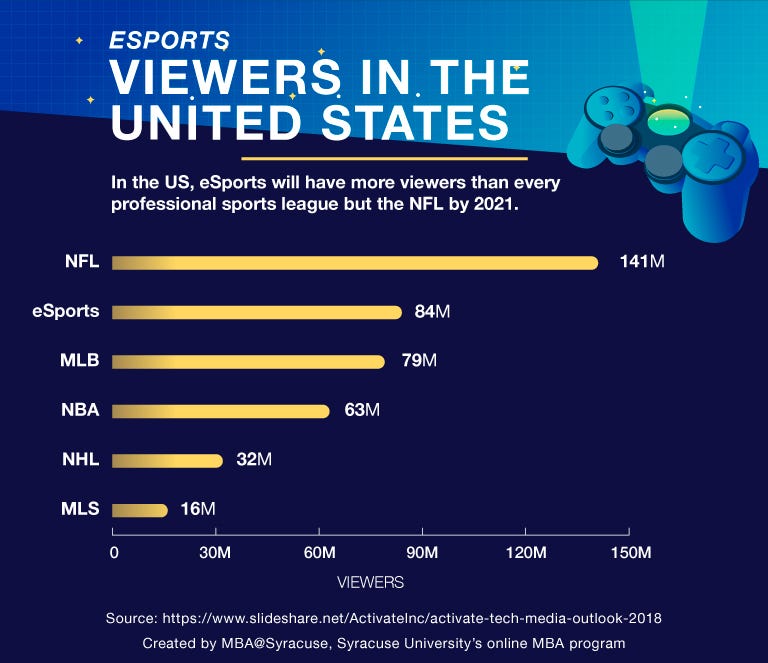 44M: The 2019 League Of Legends World Championship Final, which was contested on November 10 in Paris, garnered an average minute audience of 21.8M, up from 19.6M in 2018, and making it the most-watched LoL esports event in history. There were 44M peak concurrent viewers as well, according to developer Riot Games.
44M: The 2019 League Of Legends World Championship Final, which was contested on November 10 in Paris, garnered an average minute audience of 21.8M, up from 19.6M in 2018, and making it the most-watched LoL esports event in history. There were 44M peak concurrent viewers as well, according to developer Riot Games.
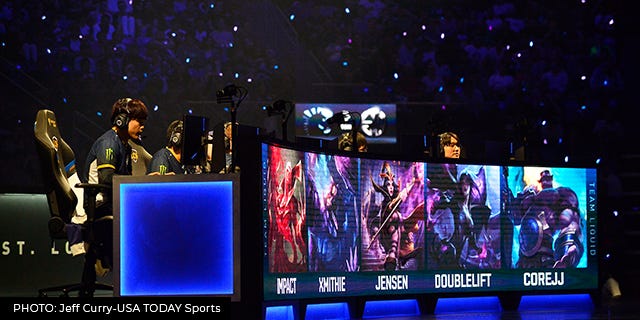 704k: Lamar Jackson-mania has taken the NFL by storm. Not only is the second year quarterback the odds on favorite to win MVP this season, but he might already be the league’s most popular player. Jackson had the most votes for the Pro Bowl by a wide margin with 704,699, beating the second-place finisher, Patrick Mahomes, by almost 165,000 votes.
704k: Lamar Jackson-mania has taken the NFL by storm. Not only is the second year quarterback the odds on favorite to win MVP this season, but he might already be the league’s most popular player. Jackson had the most votes for the Pro Bowl by a wide margin with 704,699, beating the second-place finisher, Patrick Mahomes, by almost 165,000 votes.
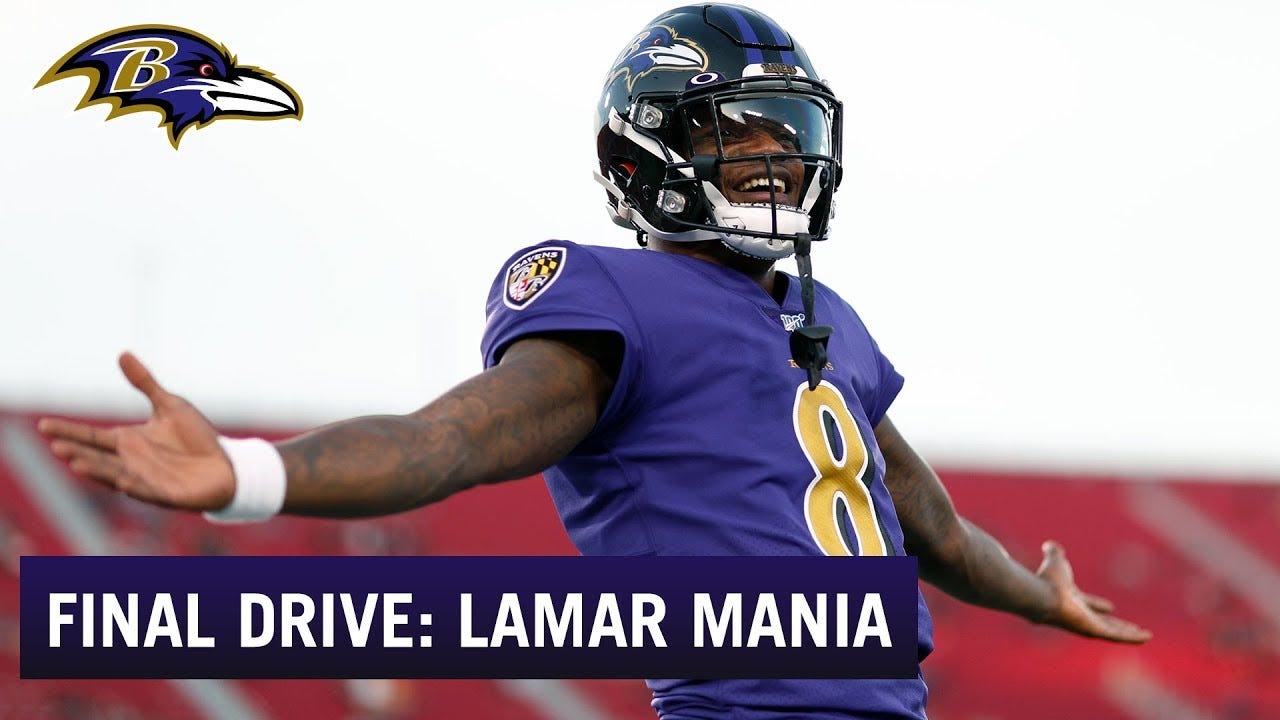 100: Football helmet maker Vicis laid off more than 100 employees last Friday.
100: Football helmet maker Vicis laid off more than 100 employees last Friday.
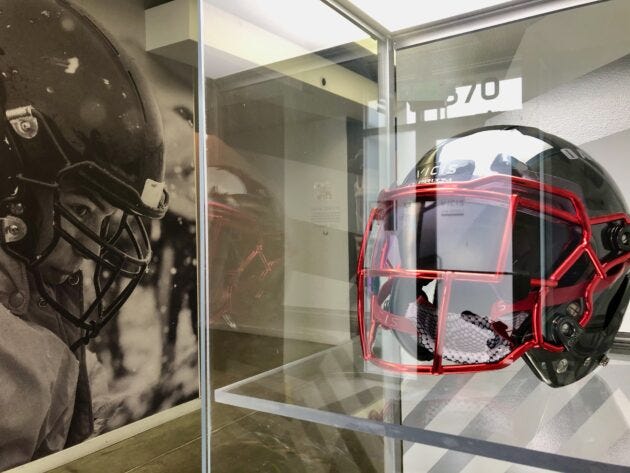 $2.77: Spanish soccer giants Real Madrid have launched a new Facebook subscription service costing $2.77 with the aim to monetise their 110 million followers on the platform.
$2.77: Spanish soccer giants Real Madrid have launched a new Facebook subscription service costing $2.77 with the aim to monetise their 110 million followers on the platform.
? The Upside: Snapshots & video of The Week.
Holograms spotted in Argentina stadium. Argentine football club Estudiantes de La Plata mesmerised their fans by putting up on an impressive holographic show for the return to their home stadium after a gap of 14 years before an Argentina Superliga fixture between the Los Pincharratas and Club Atletico Talleres at the Jorge Luis Hirschi Stadium on Friday, November 8.
| 4 |

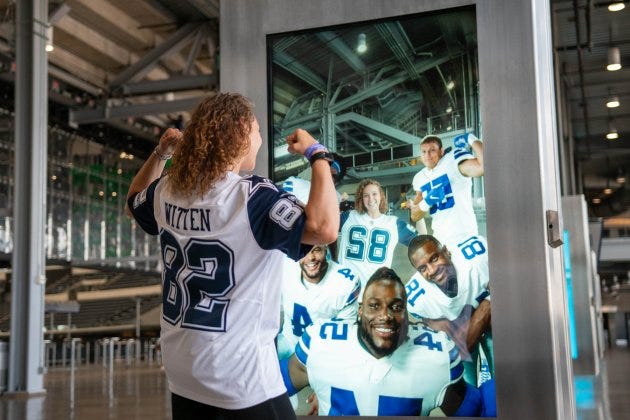
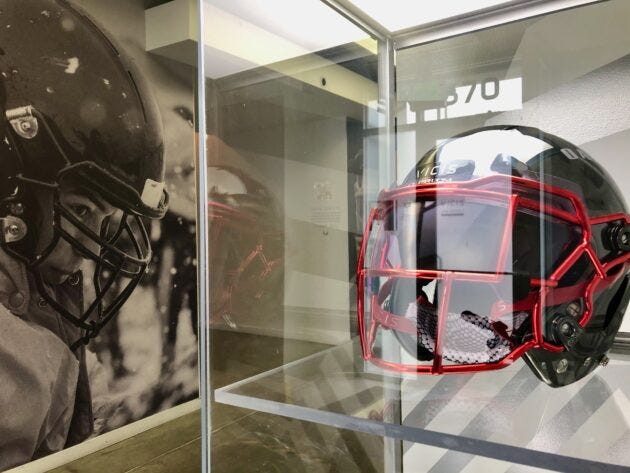
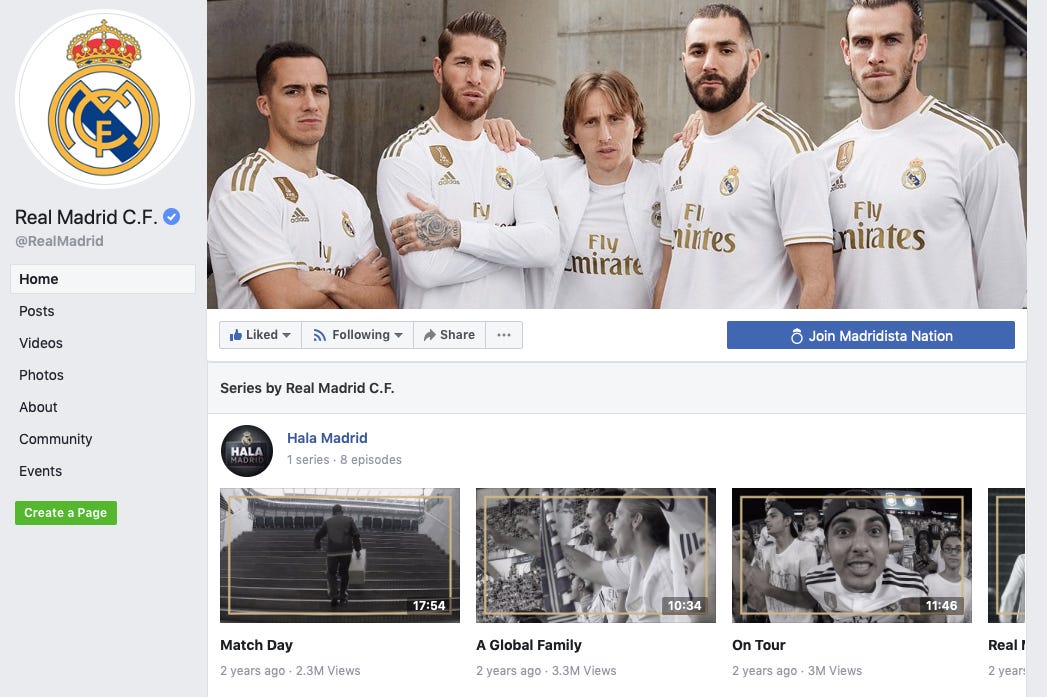
Leave A Comment
You must be logged in to post a comment.